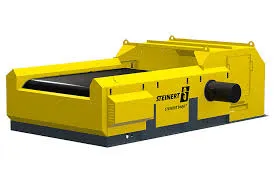

ພ.ຈ. . 08, 2024 19:18 Back to list
Understanding the Pricing of Industrial Shredding Machines
Industrial shredding machines are an essential piece of equipment in various industries, from manufacturing to waste management. These machines are designed to reduce materials into smaller pieces, making them easier to handle, transport, and recycle. However, one of the primary considerations when investing in such machinery is price. The cost of industrial shredding machines can vary significantly based on various factors, making it crucial for buyers to understand what influences pricing in this market.
Factors Influencing the Price of Industrial Shredding Machines
1. Type and Size of the Shredding Machine The type of shredding machine plays a central role in its pricing. There are several categories of shredders, including single-shaft, double-shaft, and granulators, each designed to handle different materials and volumes. For instance, a heavy-duty double-shaft shredder designed for industrial waste will usually cost more than a smaller single-shaft machine intended for lighter materials. Additionally, larger machines or those with higher throughput capabilities will generally be priced higher due to their advanced engineering and construction.
2. Materials and Build Quality The materials used in manufacturing shredding machines significantly impact their price. Higher quality materials that resist wear and tear will result in a sturdier machine. Companies prioritizing longevity and minimal maintenance costs often invest in higher-priced models made from durable steel and equipped with advanced features. Consequently, while the upfront costs may be higher, the long-term savings due to reduced maintenance and downtime can justify this investment.

3. Features and Technology Advanced features can increase the price of shredding machines. Modern machines might include automated controls, safety features, energy efficiency technologies, and advanced monitoring systems. Machines equipped with state-of-the-art technology, such as sensors that adjust shredding speeds according to the material type, will command higher prices but can greatly enhance productivity and safety.
4. Brand Reputation and Warranty Established manufacturers often set higher prices due to their reputation for quality and customer service. Additionally, a robust warranty can reflect the confidence a manufacturer has in its product. Machines that come with extended warranties or guaranteed support services may have higher initial costs, but they often provide peace of mind and assurance of quality.
5. Market Demand and Supply Conditions Like any other product, the market dynamics of supply and demand also influence the price of industrial shredding machines. In periods of high demand, prices may rise due to competition among buyers. Conversely, during economic downturns or when new technologies emerge, prices may decrease as companies seek to clear outdated inventory.
Conclusion
When considering the purchase of an industrial shredding machine, it's essential to account for various factors that contribute to its pricing. Understanding the differences between types of machines, the materials used, the features offered, and the manufacturer's reputation can help buyers make informed decisions. While the upfront costs can vary widely—from a few thousand to tens of thousands of dollars—making a careful evaluation based on specific industrial needs, budget constraints, and long-term operational costs can lead to a fruitful investment. Ultimately, choosing the right industrial shredding machine involves balancing price with performance, ensuring that the machine not only meets current needs but also supports future growth and efficiency.
Latest news
Troubleshooting Common Eddy Separator Problems
NewsJul.04,2025
The Role of Metal Recycling Plants in Circular Economy
NewsJul.04,2025
The Impact of Recycling Line Pickers on Waste Management Costs
NewsJul.04,2025
Safety Features Every Metal Shredder Should Have
NewsJul.04,2025
How Industrial Shredders Improve Waste Management Systems
NewsJul.04,2025
How Cable Granulators Contribute to Sustainable Recycling
NewsJul.04,2025